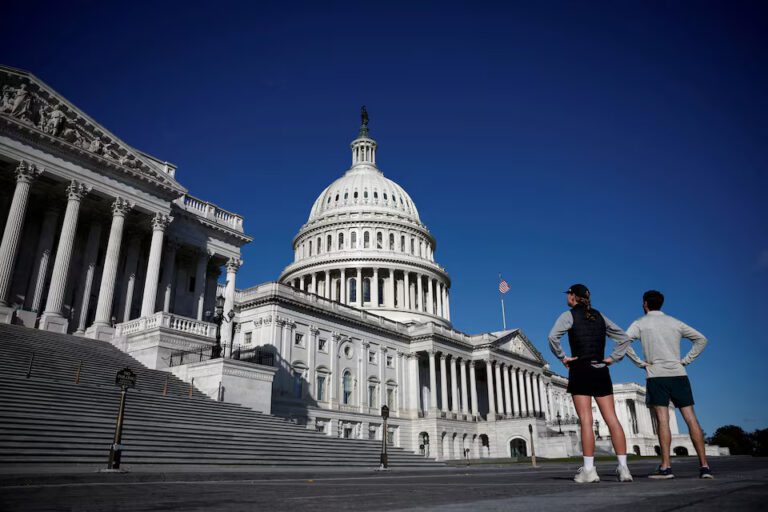🎧 Listen to This Article
WASHINGTON – The U.S. House of Representatives passed a Republican-backed budget resolution on April 10, 2025, laying the groundwork to extend the 2017 Trump tax cuts. The narrow 216–214 vote signals deep intra-party divides and raises concerns about the fiscal impact of an estimated $5.7 trillion increase in federal debt over the next decade.
Budget Blueprint to Bypass Senate Democrats
The budget plan is not a detailed tax bill but a procedural move allowing Republicans to bypass Senate filibusters and pass sweeping tax legislation through the budget reconciliation process. At the heart of the proposal is the extension of the 2017 Trump-era tax cuts, which are set to expire after 2025.
House Speaker Mike Johnson delayed the vote by a day to address objections from Republican fiscal hawks who argued the budget does not include sufficient spending cuts. The final version includes a minimum of $4 billion in cuts—far short of the $1.5 trillion previously demanded by the House.
Despite thin support, the measure’s passage is a significant step toward making permanent what was initially framed as temporary tax relief. The GOP’s broader agenda also includes boosting energy production and strengthening border security.
A Trillion-Dollar Gamble?
The proposal outlines tax reductions totaling $5 trillion, with projections that it could add approximately $5.7 trillion to the national debt over a decade. Analysts warn the real cost could exceed $11 trillion if Republicans also succeed in passing additional cuts for overtime wages, tipped income, and Social Security benefits, as promised by Trump during his 2024 campaign.
Meanwhile, revenue from tariffs—seen by some GOP lawmakers as a partial offset—remains far below what’s needed. Treasury data released Thursday shows $8.75 billion in March customs duties, up from the previous year but well short of covering extended tax cuts.
With the national debt already exceeding $36.6 trillion, concerns mount about the sustainability of such a plan, particularly as interest payments rise and global credit markets grow increasingly sensitive to U.S. fiscal decisions.
Mixed GOP, Sharp Democratic Criticism
Republicans pitched the vote as a signal to markets and a stimulus to American entrepreneurship. “This is a very strong signal to investors and job creators,” said Speaker Johnson.
Former President Trump hailed the vote as setting up one of the “greatest and most important signings in the history of our country,” should the tax extensions be enacted.
However, critics within and outside the GOP are raising alarms. Representative Frank Lucas (R-OK) warned against ideologically rigid strategies that have little legislative viability. Senator Susan Collins (R-ME) voiced doubts about the GOP’s claims that cutting waste and fraud could yield nearly $900 billion in savings, particularly in Medicaid.
Democrats denounced the plan as a “giveaway to billionaires” at the expense of everyday Americans. House Democratic Leader Hakeem Jeffries said the blueprint paves the way for “some of the most extreme cuts to health care and nutritional assistance in our nation’s 250-year history.”
The budget resolution now sets the stage for Republicans to draft and advance formal tax legislation without Democratic support. Key developments to monitor:
- Details of the Tax Plan: Will it mirror the 2017 structure, or include new elements like targeted cuts for Social Security income and overtime wages?
- Spending Cuts Showdown: Republicans must balance the demand for deeper cuts with maintaining Senate support, especially from moderates like Collins and Lisa Murkowski.
- Debt Ceiling Deadline: The GOP plan includes language to raise the debt ceiling. Failure to finalize a deal by mid-summer could trigger a default on U.S. obligations.
- Market Response: Investors and credit agencies may react strongly to signs of growing debt without adequate offsets.
For further details, clarification, contributions, or any concerns regarding this article, please contact us at editorial@tax.news. We value your feedback and are committed to providing accurate and timely information. Please note that our privacy policy will handle all inquiries



